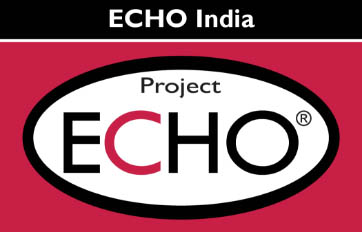Nurses form the largest cadre of healthcare professionals and play an integral role in day-to-day patient care. However, nurses in India face several challenges, limiting their capabilities and morale.
As compared to doctors, nurses have limited pathways for high professional development opportunities. On top of it, they are expected to spend a large amount of time on administrative and unskilled work, despite their skills and qualifications. Unfortunately, these challenges are leading to an increasing gap in the learning capacity of nurses as opposed to helping them in continuous development of medical knowledge.
As a result, India faces an acute shortage of nurses, which means that there is a need for an overhaul of the traditional healthcare system. Improving the educational capacity of the nursing capacity has been proposed as one of the most effective strategies to address the shortage of nurses in India.
While nursing councils have launched initiatives to build the capabilities of nurses, they are unable to address all the challenges. To address this widening gap, ECHO India has forged partnerships with prominent public sector and private sector institutions, including several nursing associations, to conduct capacity-building trainings specifically designed for nurses. Through the sessions conducted, ECHO India adopts a participatory approach to cover trainings and support in major healthcare areas through mutual respect and adult learning methodologies.
For nurses like Amruta Ingle, who is a staff nurse at the Nair Hospital in Mumbai, ECHO sessions have helped in delivering better patient care by providing actionable knowledge and improving practices.
Amruta Ingle, Staff Nurse, Nair Hospital
While talking about the ECHO sessions, Amruta says, “As a result of this training, I am able to maintain a positive attitude, communicate better with patients, and ensure that there is no further transmission of infection to patients or to other healthcare workers.”
Apart from enhancing the learning capabilities of the nursing staff, ECHO trainings also provide them with an experiential learning platform, where they can learn from the solutions of each other. This helps them to avail support from each other through case-based learnings, strengthening their leadership and management skills and learn about innovations in their professional pursuits.
Another nurse who participated in ECHO sessions says, “I had never experienced a training like this in the history of my employment. It was well structured and the scientific principles and reasons behind why we do what we do, became instantly clear. The learnings still echo in my mind when I do my work at the hospital.”
ECHO’s trainings to address the urgent need of better infection control practices resulted in training of 5,500 nurses across two states, Bengal and Maharashtra. These trainings positively influenced the overall learning and confidence of nurses regarding infection prevention and control (IPC); the program is now being expanded to include many other topics.
Talking about the effectiveness of these trainings, Executive Health Officer of the Bombay Municipal Corporation says, “Nurses became more knowledgeable about measures to reduce morbidity and mortality from infections – we saw a reduction of 75% in water-borne diseases and infections in 2021.”
